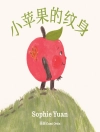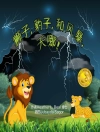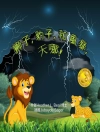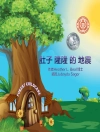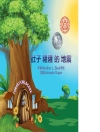Categorizing is an important cognitive function by which we group things according to a common characteristic, and name items that share that characteristic. Categorizing helps us perceive and organize the world around us, from the most basic concepts such as colors and shapes, to the most complex aspect of our lives like medicine and chemistry. We use categorizing from sorting mail, to organizing our desk, to planning a nutritious and balanced meal. Categorizing can also be used as a tool to help our memory! This book helps a child understand and develop the concept of categories, name them and identify items that belong to them. Active participation of the child is encouraged by identifying the categories of additional items found in the back of the book, and cutting and pasting each item onto the correct category page. The child can expand his book by adding his own categories that are of interest to him on additional pages provided. Name the category on the top of the page and find and paste pictures of items that belong to it! Help your child or student understand this important concept. Encourage him to broaden his awareness and perception of the world around him through this book!
Yazar hakkında
Rachel Rosen was trained at the International Center for the Enhancement of Learning Potential in Jerusalem, in the Instrumental Enrichment Program and the Mediated Learning Experience as developed by the director and founder Professor Reuven Feuerstein (of blessed memory). Over the 20 years that Mrs. Rosen worked at the Institute, she helped many individuals overcome cognitive obstacles to reach their ever expanding potential. In 2007, Mrs. Rosen returned to the United States to help her Traumatic Brain Injured grandchild while she continued to help special needs children at a small private school in Brooklyn. In one instance, Mrs. Rosen was asked to intervene to help a 9 year old student who was unsuccessful in grasping the concept of categories despite the efforts of teachers and specialists. Through Mrs. Rosen’s creative modifications of the Enrichment Instrument of “Categorization" to the needs of the child, and her perceptive analysis of feedback during the mediated learning experience, Mrs. Rosen successfully enabled this child to overcome her difficulty and also brought an undetected hearing problem to the attention of her supervisor. On further investigation, there was indeed found a need to surgically remove a bone blocking the child’s eardrum, impeding her ability to hear properly. After surgery, the child’s responses improved so dramatically that she was able to be integrated into a normal school setting!
The belief that one’s IQ is static and not expandable is proven false by another instance of Mrs. Rosen’s work, this time with a 10 year old boy presenting with an IQ of 50, whose parents wanted him to be accepted into a small private school program whose criteria for acceptance was an IQ of at least 86. Mrs. Rosen worked with him for 6 months using her creative and dynamic mediation through an Instrumental Enrichment instrument and teaching basic math and reading comprehension. At the end of this period the child was reevaluated. The director of the program commented that this was a different child and he was accepted into the program. While the child’s “new” IQ score was not told to Mrs. Rosen, it had to be at least 86! Furthermore, the child acclimated well to the program and was able to keep up with the class independently without further assistance!
Mrs. Rosen has had many other fascinating experiences helping individuals overcome cognitive barriers. In the future, she would like to compile a book of her experiences to share with others who could benefit from reading about actual examples of mediated learning experience interactions and how it impacts the learner. Mrs. Rosen can be reached at her e-mail address: [email protected]


